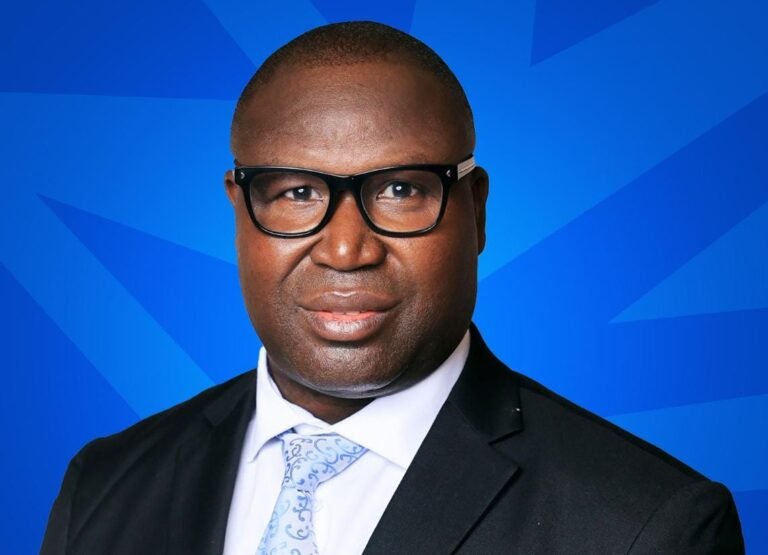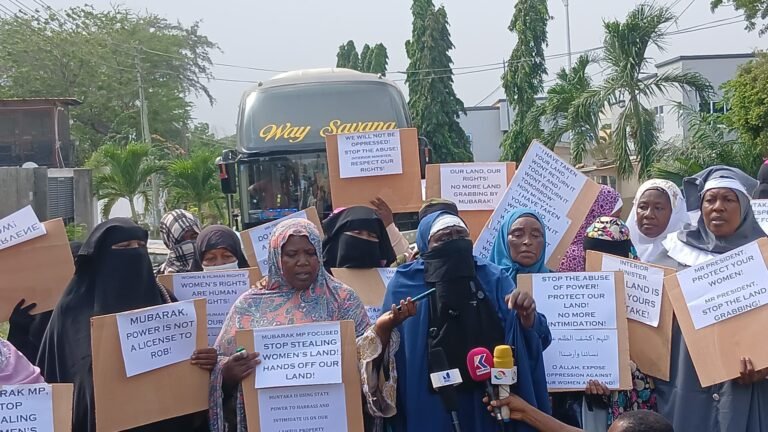
Godfred Yeboah Dame, Minister of Justice & Attorney-General

The Office of the Attorney-General has described as a miscarriage of justice the decision by the High Court that the criminal trial of the former COCOBOD boss, Stephen Opuni, businessman Seidu Agongo, as well as Agricult Ghana Limited “should be heard de novo”.
It believes the judge, Justice Kwasi Gyimah, in his ruling on April 4, 2023, misdirected himself in the application of the principles regarding the adoption of evidence in a trial.
The A-G has therefore filed an appeal at the Court of Appeal seeking a reversal of the decision.
In a notice of appeal, the Attorney-General, Godfred Yeboah Dame, pointed out that he is “dissatisfied” with the ruling, and wants the Court of Appeal to put down the ruling of the High Court.
Mr Godfred Dame noted that he would be “saddled with the same suspicions and allegations of unfairness levelled against the current state of proceeding”, which have already been dealt with by the Supreme Court since the learned trial judge exercised his discretion wrongly in arriving at a conclusion.
“The decision of the trial judge to start the trial de novo has occasioned a miscarriage of justice as it will hinder an efficient trial of the accused persons in the instant case,” he argued.
Making a case
In his argument, Mr Godfred Dame maintained that the decision to adopt evidence in the matter amounts to “adopting every act and decision that has been taken by the previous judge”, thus failing to consider the material factor in adoption of evidence.
He also argued that the so-called “suspicions and allegation of unfairness” had already been pronounced upon by the trial court as well as courts superior to the trial court, and therefore had become irrelevant.
The learned judge, he said, ignored the point that the only motion pending before the trial court was an application for the previous judge to recuse himself and which had been rendered moot by the judge’s retirement and subsequent placement of the case before the learned judge.
“The learned judge in relying on irrelevant factors already disposed of by the Superior Courts unfairly gave the accused persons a second bite at the cherry,” the Attorney-General argued further.
In that regard, he insisted that the learned judge erred in ignoring the right and duty of the Republic to efficiently prosecute crime and placing a premium on the presumption of innocence of the accused person.
Justice Gyimah’s ruling
Following the retirement of Justice Clemence Honyenuga, who had been presiding over the case since 2018, the Chief Justice reassigned the matter to another judge.
On March 30, when the court reconstituted at the High Court (Land Court 2), the Attorney General, through the Principal State Attorney, Mrs. Evelyn Keelson, appealed to the court to adopt the proceedings of the previous judge, but was vehemently opposed by counsel of the accused persons.
The parties were therefore directed to file their written arguments, and on April 4, 2023, Justice Kwasi Anokye Gyimah, the new judge, ruled on the application and ordered that the case be started afresh, considering a number of issues.
The judge, in his ruling, recognised the fact that when Justice Honyenuga (rtd) was in charge of the matter, “the accused persons have time and again complained about the fairness of the trial so far, and that is one of the reasons why they are vehemently opposed to the adoption of proceedings in this matter.”
The judge further stated, “The question that I keep asking myself is that even though I may have the discretion to adopt the proceedings in this matter and continue with this trial, with all the allegations, through various applications, of the unfairness of the proceedings before the previous judge, though none have been proven so far, will I be doing justice if I treat it as business as usual, adopt the proceedings and continue with the matter as it is?
“I appreciate the fact that this case has travelled for quite some time and a lot of witnesses have been called and discharged, but it is my candid opinion that it will be in the interest of justice and the interest of all the parties for this court to start on a clean slate, free from all the shackles of allegations of unfairness and counter allegations of intentional delays that has bedevilled this case over its duration and that has resulted in the filing of numerous applications before this court, differently constituted, and also before the Supreme Court,” he argued.
Making reference to section 80(2) (a) of NRCD 323, which states that one of the factors a court is enjoined to look at when assessing the credibility of a witness is the witness’s demeanour, he said “the best way that the said statutory provision can be observed is for the trial court to have a first-hand experience or observation of the witnesses called by all the parties and this can only be achieved in the present case if this court starts on a clean slate.”




